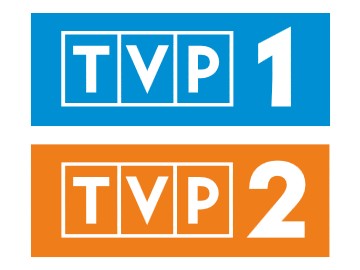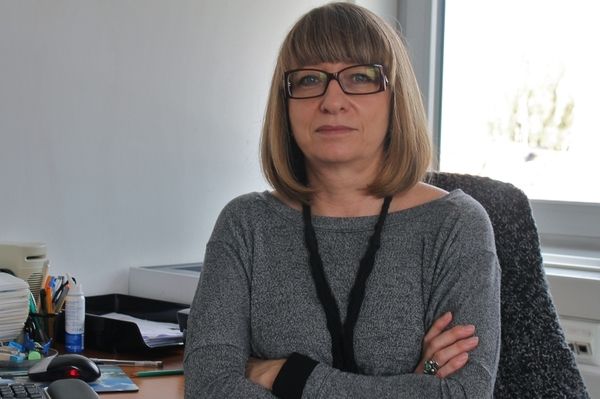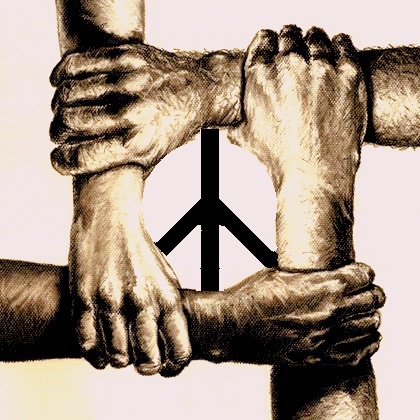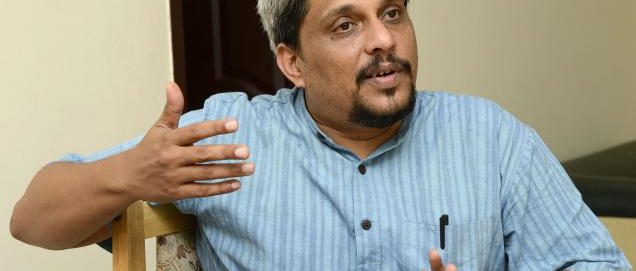In a country where democracy appears to be on the ropes, what can philanthropy do to retrieve the situation and what can solidarity with one’s peers in that country achieve? Ewa Kulik-Bielińska, Director of the Stefan Batory Foundation outlines the growing threat to Poland’s civil society and her hopes for the forthcoming European Foundation Centre annual gathering, to be held this year in Warsaw.
Writing in Alliance last September you sounded the alarm for liberal democracy in Poland. You said it was being dismantled since the election of the Law and Justice Party in October 2015. How have things developed since then?
The Polish government has used its parliamentary majority to secure the full control of the ruling party over all democratic institutions, the judiciary, media and civil society. The first attack was directed at the independence of the judiciary and the powers of the Constitutional Tribunal which is the safeguard of the rights and freedoms prescribed by the constitution.
The Tribunal was packed with judges loyal to the ruling party. The new parliament also merged the positions of Minister of Justice and Attorney General, subordinated public prosecutors to the political power, increased the powers of surveillance of the police and secret services and removed opposition members from public posts. The government has also removed the open and competitive process of recruitment into civil service, and abolished the requirement for senior civil servants to have managerial experience and no party affiliation.
The parliament changed the law on assemblies and introduced so-called cyclical assemblies, that is, assemblies held at least four times a year to celebrate important national and state events. These assemblies have priority over any gatherings organized by citizens to voice their concern or defend their interests. It has already been used to block citizen protests against these demonstrations.
What about the media?
The government has set up a National Media Council, which keeps public media in the hands of political appointees.

Poland is ‘re-polonizing’ media by shutting out private media and strengthening national channels, such as TVP.
National radio and TV just voice the opinion of the ruling party and attack its enemies. In November, for example, it launched what was basically a smear campaign against civil society organizations.
Meanwhile, private media is being curtailed as companies are coming under pressure to channel advertising to right-wing media. In a rare example of successful citizen protest against such measures, a popular protest prevented an attempt to restrict the media’s access to parliament’s plenary sessions at the end of last year.
You mention a smear campaign against civil society organizations. What kind of attacks did these organizations face?
The media campaign started with an attack on an organization that for years has been developing local democracy in Poland providing training and assistance to local councillors. The real target was the organization’s president and one of its founders who was an ex-judge of the Constitutional Tribunal. He was vocal in defence of the rule of law and against the dismantling of the independence of the judiciary. Then they extended this line of attack to three other organizations whose staff or board members are related to constitutional tribunal judges or opposition politicians.
The government’s strategy is to divide the NGO sector by pitting different elements of it against each other, big against small, human rights groups against ecological groups, provincial against those from big cities.

The need to push back the shrinking space for civil society is a rising concern for European philanthropy.
For example, the media is suggesting that there is a group of ‘fat cats’ sitting in Warsaw getting grants, whereas, if you are in a little town somewhere, you have no access to this money.
They allege that the beneficiaries are left-wing NGOs who are promoting gender equality, defending the rights of sexual minorities, etc, while those who are promoting Christian values or the patriotic education of young people are being discriminated against – even though they can provide no evidence for this.
Recently, the Batory Foundation has become the target of attacks because for the past three years we were the operator of a programme, funded from the European Economic Area grants programme, for Polish NGOs. The programme distributed €37 million over three years to some 600 projects in areas such as public participation, monitoring of public institutions, counteracting social exclusion, preventing discrimination and violence against women, kids and minorities, and promoting civic education of children and youth.
Out of these 600 grants, 16 went to LBGTQ groups and the government media is now using this to suggest that these were the only kind of projects supported by the programme. They label those NGOs which promote gender equality, help refugees and migrants as liberal and left and subversive of Polish national interests and the Polish national identity.
The government plans to establish a National Centre for the Development of Civil Society, a governmental body which will take control over all public and EU funds designated for the development of civil society organizations as well as over the cooperation of the ministries with NGOs. The draft bill on this has been prepared by the newly created office of the government plenipotentiary for civil society which has been heavily criticized by the NGO sector and even by the government’s own legislative department. However, it is likely to be passed because of the government’s parliamentary majority.
We are monitoring what the government and parliament are doing, informing the public about violations of the law and non-compliance with the rules of impartiality.
Fortunately, there are still privately-owned media where you can find news and opinions different from those of the public media. We are funding watchdog and fact-checking organizations as well as those fighting discrimination against refugees and against minorities. We are also supporting organizations providing assistance to the NGOs and NGO activists threatened either with physical attack or verbal attack.
Are there Polish philanthropists with liberal values funding this work?
Unfortunately, we do not have a class of Polish philanthropists. There are wealthy people in Poland, but few of them are active in philanthropy and almost none of them have established a foundation in his or her own name. Those that there are and corporate foundations generally prefer safe subjects – funding scholarships, hospital equipment, supporting the sick and needy.
 There is a group of private foundations set up in the 1990s, mainly with the help of funds from the US Congress which assisted in the transformation of Poland to democracy and they – within their statutory mandate – are funding initiatives aimed at mobilizing civic activism and community work.
There is a group of private foundations set up in the 1990s, mainly with the help of funds from the US Congress which assisted in the transformation of Poland to democracy and they – within their statutory mandate – are funding initiatives aimed at mobilizing civic activism and community work.
However, overall, Polish civil society organizations are heavily dependent on public funds, on funds from the EU, EEA and other foreign donors. Fortunately, more and more of them engage in fundraising from the general public, employ online fundraising techniques and crowdfunding or have other income-generating activities.
The scarcity of funding for alternative voices makes your job at Stefan Batory Foundation even more important but also perhaps a bit lonely. How much pressure do you feel?
In the recent months, we have been attacked by the far-right groups and right-wing media, as supporters of the open society and the agents of George Soros who is presented as the person responsible for opening the borders to refugees, promoting gender ideology and diluting our national identity.
You’ve also been the chair of the European Foundation Centre (EFC) over the past year. How important is the support of your peers and fellow members in dealing with these issues?
I do feel sympathy and concern from my peers in the European foundation community, but also surprise that this has happened because, a year ago, Poland was seen as an example of a successful transition from communism to democracy and a market economy. But these populist tendencies, this polarization of society are something which is present in all the countries of the EU.
We see it in Holland, we see it in Britain, we see it in France. It is scary to see how fast people’s attitudes change and how a party that won less than 20 per cent of votes can gain a parliamentary majority that may change the system of a country.
I am extremely moved by the statement of 80 philanthropic leaders, the majority of them members of EFC, who two weeks ago protested against plans to introduce a Putin-like foreign agents’ NGO law in Hungary.
It was an important manifestation of solidarity and a signal to our civil society that our European and American colleagues will not abandon us if times get worse.
I see also more interest in European philanthropy in pooling efforts to reopen the shrinking space for civil society in our countries and to work together to prevent the rise of nationalism, isolationism and extremism that threaten our European unity.
Hundreds of foundations will be coming to Warsaw later this month for the EFC conference. What are your hopes for the gathering?
First of all, we want to show our colleagues a different face of Poland, because it’s not like the whole country has been overwhelmed by this populist upsurge.

People demonstrate against the Polish government’s plan to tightening the abortion law in Krakow, Poland. Photo credit: Lukasz Kaminski of Reuters.
Over eighty per cent of people still believe that membership of the EU is the best thing that happened to us and want closer integration.
Polish people cherish democracy and freedom, and resist government attempts to take away their rights. There is a visible citizens awakening and a proliferation of civic initiatives in defence of democracy.
Since Autumn 2015, we have had demonstrations against violations of the constitution, in support of an independent judiciary and media freedoms. We have had protests against the total ban on abortion and parents’ and teachers’ protests against the reversal of educational reform. Opinion polls in the past month put the opposition parties only a few per cent behind the ruling party.
Coming to the conference, its title – courage to re-embrace solidarity in Europe – is important. We feel that people have forgotten why the EU was created. It was not an idea of bookkeepers, it was not about money.
 It was to provide the means that would guarantee that war would not happen and that people of different religions and views and nations could live together in a peaceful continent.
It was to provide the means that would guarantee that war would not happen and that people of different religions and views and nations could live together in a peaceful continent.
The name of the movement behind the democratic changes in Poland which started in 1989 was Solidarity, and that wasn’t an accident. It was something that people felt we needed in order to overcome the difficulties and the unjust system in which we lived. Thus, the conference title has these two connotations – a link to the changes in Poland and the link to the values on which EU was founded.
But it is also about solidarity as a universal value, something what we need to tackle the complex problems the world faces. We live today in a very inter-connected world. Syria is really a good example of how a chain of events elsewhere can create a crisis in Europe, which has brought about this wave of populism and nationalism.
We want to highlight the inter-connectedness of the problems that are happening all over the world, not only in Europe and stress the need to be in it together. We want to show that the European philanthropic sector is in solidarity with all the countries in Europe and the world and with those who feel that globalization and the rapid changes in technology are leaving them behind.
Are you optimistic about philanthropy’s ability to address some of these challenges in Europe?
It is obvious that philanthropy alone will not solve the world’s problems.
But what philanthropy can do is to take risks, search for new solutions and test new ideas. Several such model solutions will be presented during the conference and I hope the participants will come out of it with ideas of how they can use what they have learned in their daily work.
I hope that this meeting will be very symbolic in its message that European philanthropy and European foundations stick together, that they care about what is happening in Europe, and are determined to show solidarity and commitment in tackling the challenges our societies face today.
And, in this respect, I am optimistic.
You can read more about the upcoming EFC’s 2017 Annual General Meeting here.
Cast your vote as to which session at the AGM you would like Alliance to report on.








Comments (1)
This is such a clear and couragious statement - the voice of Solidarity at its height. I only hope Ewa is not too alone in standing up for its values.